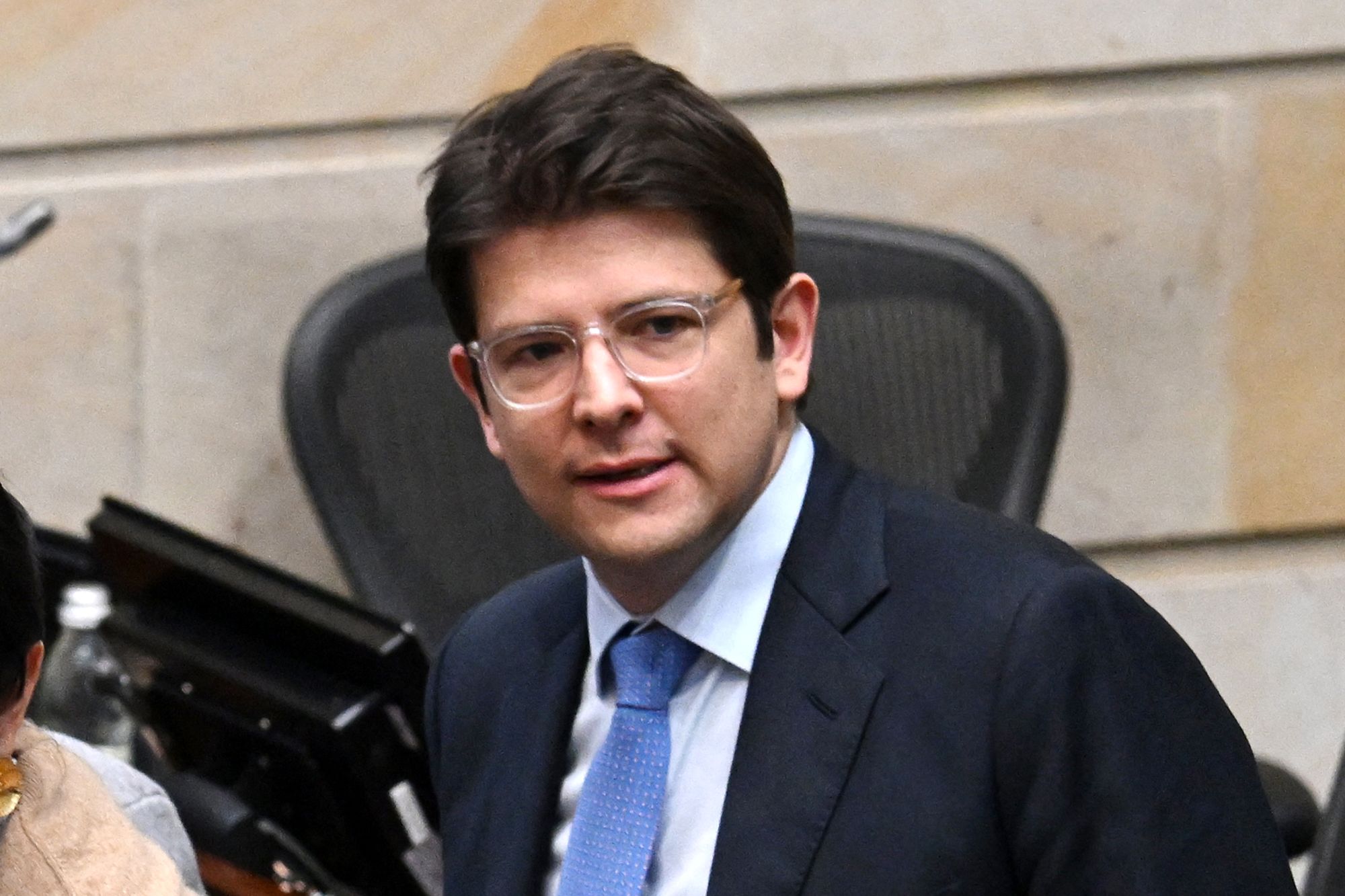Colombia is reeling from the loss of one of its most vocal political figures, Senator Miguel Uribe Turbay, who passed away two months after surviving a brutal shooting.
The 39-year-old conservative leader had been in critical condition since the June 7 attack, and his death now marks a dark moment for the country’s political history.
A Wife’s Heartbreaking Goodbye
Uribe’s wife, María Claudia Tarazona, confirmed his passing from a hospital in Bogotá, where he had been receiving treatment.
In an emotional social media post, she wrote, “Rest in peace, love of my life. I will take care of our children. I ask God to show me the way to live without you.”
The senator leaves behind two young sons and a grieving family determined to honor his memory.
The Attack That Shook Colombia
The incident took place as Uribe was delivering a campaign speech in a public park.
Gunfire erupted, striking him three times—twice in the head—sending shockwaves through the crowd.
Multiple videos of the attack quickly spread online, reigniting fears of political violence that many Colombians thought had been left in the past.
The Young Suspect and a Paid Hit
Authorities arrested a 15-year-old boy, Juan Sebastián Rodríguez Casallas, at the scene.
Investigators say he admitted to being paid to kill the senator.
Since then, several others have been detained, and last month, officials named the alleged mastermind: Elder José Arteaga Hernández, known by the aliases “Chipi” and “Costeño.”
Despite these arrests, the motive behind the attack remains murky.
Questions About Who Ordered the Killing
The Attorney General’s Office is exploring possible links to armed criminal groups—remnants of former guerrilla forces involved in cocaine trafficking to the United States and Europe.
Police revealed that the weapon used had been legally purchased in Mesa, Arizona, back in August 2020.
So far, six individuals face prosecution, though one minor involved in the investigation has escaped custody.
A Rising Political Force Silenced
Uribe had set his sights on the 2026 presidential election and had become one of the fiercest critics of leftist President Gustavo Petro.
Known for warning about Colombia’s slide back into the violent days of the 1980s drug wars, his assassination attempt and eventual death have stirred deep concern about the state of democracy and public safety in the country.
A Family History Marked by Tragedy and Leadership
Political violence is nothing new for Uribe’s family.
His mother, journalist Diana Turbay, was killed during a police rescue mission after being kidnapped by Pablo Escobar’s network.
His grandfather, Julio César Turbay, served as Colombia’s president from 1978 to 1982.
Uribe himself was highly educated, earning a master’s degree in public administration from Harvard and starting his political career at just 26 years old.
National and International Outcry
Former President Álvaro Uribe, leader of the senator’s party but not related to him, described the killing as a devastating blow: “They have killed hope. May Miguel’s struggle be a light that illuminates Colombia’s path.”
In the wake of the shooting, thousands of Colombians took to the streets dressed in white, waving flags, and demanding an end to political violence.
International voices have also joined the chorus. U.S. Senator Marco Rubio expressed condolences and called for justice, saying, “The United States stands in solidarity with his family and the Colombian people, both in mourning and demanding justice.”
Unanswered Questions and a Call for Justice
Authorities are still piecing together the full story—who ultimately ordered the killing, and why.
Meanwhile, Uribe’s allies have criticized the government for allegedly ignoring repeated requests to strengthen his security detail.
The tragedy leaves Colombia questioning not just the safety of its leaders, but the health of its democracy itself.
